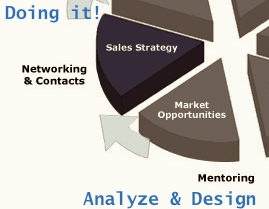In your communications be specific and
direct. Don’t avoid the “elephant in the room”, bring issues it to the fore
early and often. If problems are occurring or others are not performing as you
wish let them know with tact and in private. Use a calm and logical approach to
your communication and avoid abruptness.
Share credit with those that assisted in wins
you have had, even go to the point of slightly overstating their contribution
or as someone said “when in doubt, share”.
Resolve issues or solve problems through
direct communication at with person causing the difficulty, don’t bring in the
boss or others. One to one is best.
If you are doubtful about your role in a
project or proposed work related activity, tell other stakeholders of your
concerns upfront. If other duties and work issues overtake you when engaged on
an ongoing commitment, advise of the difficulties you are having, or going to
have as soon as you believe problems will occur.
Spend non-work time networking with your colleagues, don’t just wander off alone during breaks and always be involved in any volunteer activities your organisation sees as worthwhile.
Spend non-work time networking with your colleagues, don’t just wander off alone during breaks and always be involved in any volunteer activities your organisation sees as worthwhile.
Don’t ask loaded or rhetorical questions, ask only “non-assumptive” questions with couching them in any “spin” or as a way to push some secret agenda.
Make only promises you can keep and if
events overtake you admit it don’t avoid the issues.
If your organization has a formal lines of
authority responsible for particular tasks or to resolve issues don’t step
outside the existing system and practice full disclosure of facts and
potentially useful information.
Admit to your mistakes and never rope others into your problems, don’t try to share the blame by pushing your real difficulties onto, or by finding fault in others. NEVER discuss (read gossip) about another employee or department particularly if they are having difficulties… NEVER gloat or demonstrate that you are enjoying the demise of others.
Be on time, make decisions, don’t procrastinate and show the strength of your self-belief and character by being willing to be wrong and live with the consequences.
Admit to your mistakes and never rope others into your problems, don’t try to share the blame by pushing your real difficulties onto, or by finding fault in others. NEVER discuss (read gossip) about another employee or department particularly if they are having difficulties… NEVER gloat or demonstrate that you are enjoying the demise of others.
Be on time, make decisions, don’t procrastinate and show the strength of your self-belief and character by being willing to be wrong and live with the consequences.
Don’t scoff at another’s opinions or efforts and add support to those in difficulty. Always look at the positive intent of risky approaches to new ways of doing things and if asked honest opinions or advice with support for the fact that others are willing to try a new approach.
Have enough self-control (and demonstrate it) to overcome immediate or short-term feelings in the interests of maintaining ongoing and long term associations.
Public communication and behaviour are a small tip of a very large personal iceberg of values and belief, be willing to question your belief system and grow as a person. Don’t dogmatically stick to what you were indoctrinated with as a youngster, be will to change your perspective.
TRUST IS ESSENTIAL FOR LEADERS
The following is a list of words that others need to be using when they describe you if you are to gain and maintain their trust;
The following is a list of words that others need to be using when they describe you if you are to gain and maintain their trust;





